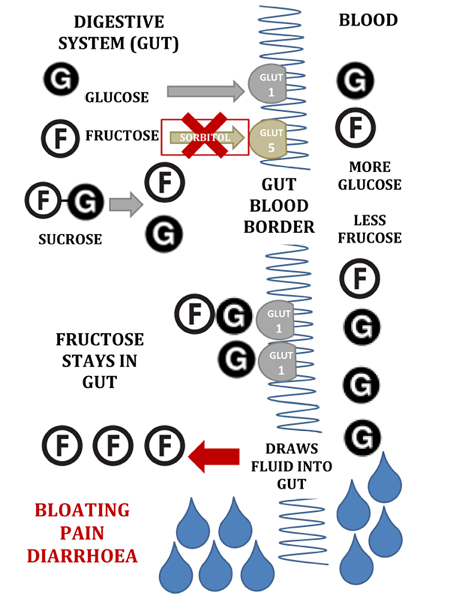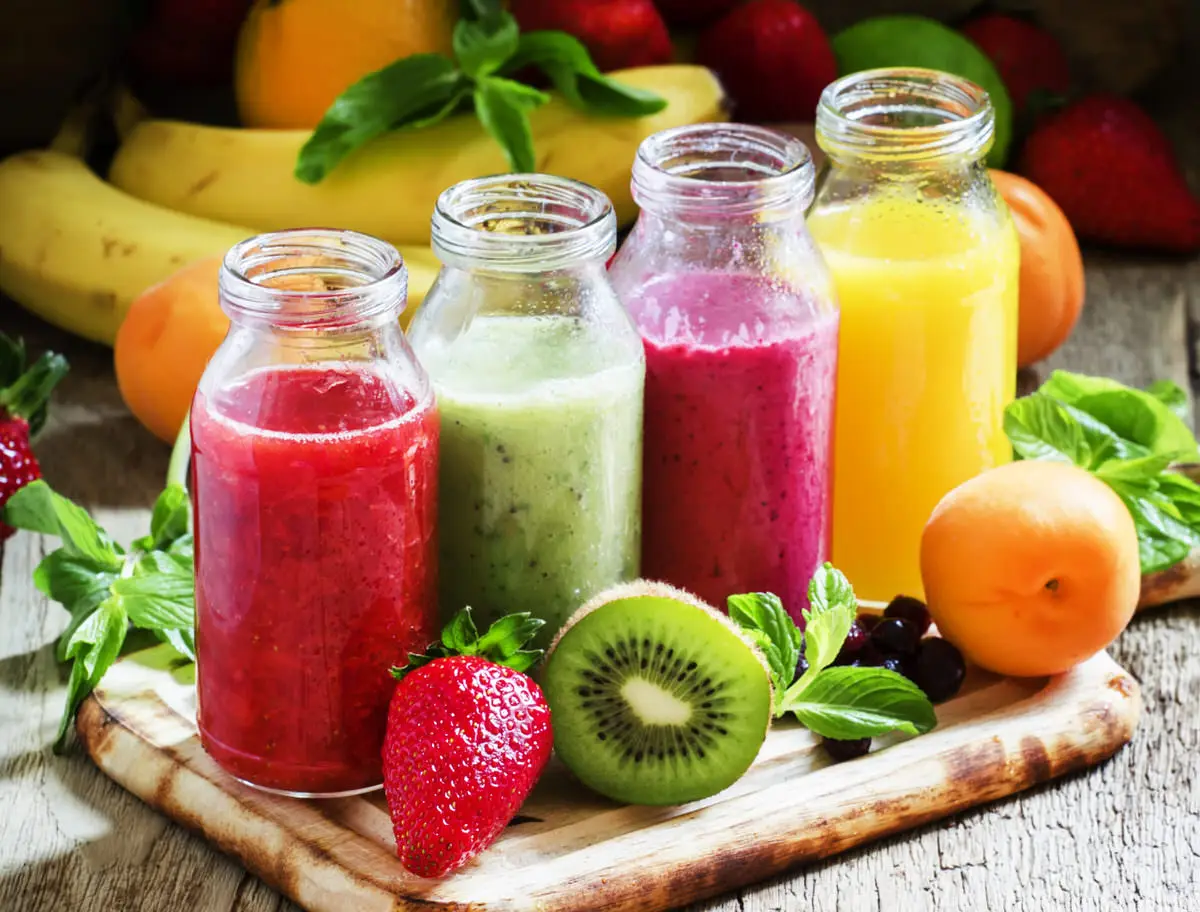Fructose is not easily digested
What that means is the poor old fructose transporter “glut-5” is completely overworked and can’t keep up with the demands of that much fructose every day. It is the equivalent of one worker doing five peoples tasks. Some fructose gets a ride across into the blood stream by piggy backing onto glucose, which helps a bit. On the other hand, sorbitol prevents fructose being transported into the blood stream, but is often in similar foods (think apples, stone fruits and watermelon).
What happens when too much fructose stays in the gut?
Fructose that stays in the digestive system causes an imbalance in the level of sugar in the gut, which the body tries to compensate for by drawing and retaining water in the gut in a process called osmosis. So now we have extra fluid in the gut, accounting for the bloating, pain and diarrhoea symptoms of excess fructose. To add insult to injury the fructose is “eaten” by bacteria in the bowel , in a process that also creates lots of gases, including smelly methane gas. Gas in the bowel equals pain, bloating and often embarrassing wind, not only due to the noise but the previously mentioned methane smell!

Who is most sensitive to fructose?
Some people have naturally low levels of the “glut-5” fructose transporters, a condition called “FructMal”. People with IBS (usually the diarrhoea dominant version) apparently have enough “glut-5” but their guts are super sensitive to the extra pressure from all that water being retained in the gut, not to mention the gaseous results of the fructose being chowed down by bacteria in the bowel.
What to do, what to do?
For those people who don’t have any problem with bloating, pain or diarrhoea after eating fruits, honey, fruit bars and the like – go right ahead. Eating “sugars” in moderation and mostly as whole foods such as fruits continues to be the recommendation for you lucky folk.
Restricting dietary intake of free fructose (and the chains of fructose called fructans) may provide symptom relief for those of you who suffer some degree of fructose intolerance or malabsorption.
Still not sure? Make an appointment to see one of our gut health dietitians.

